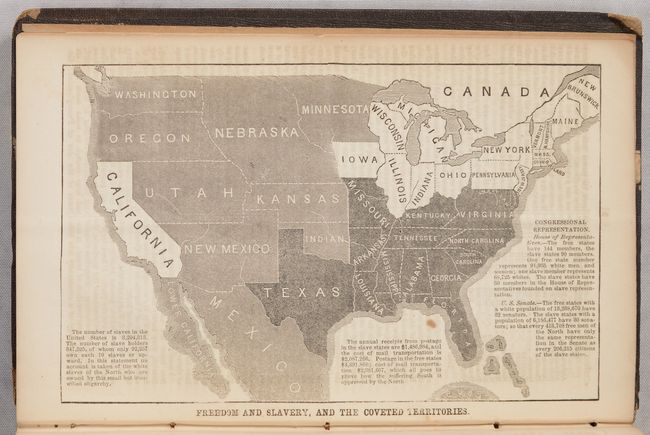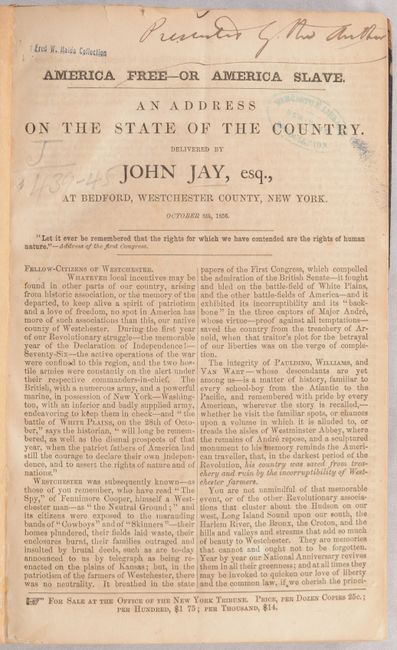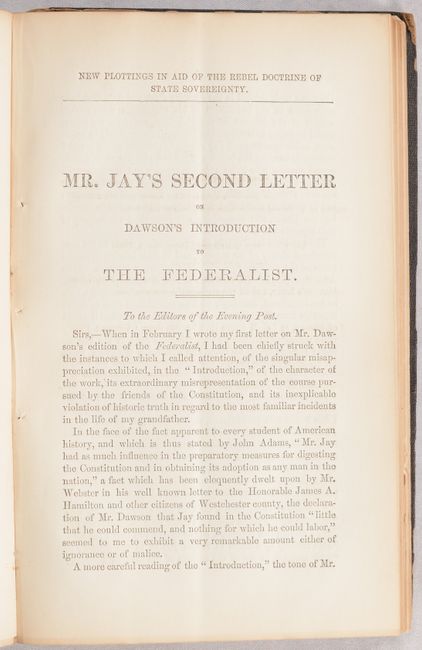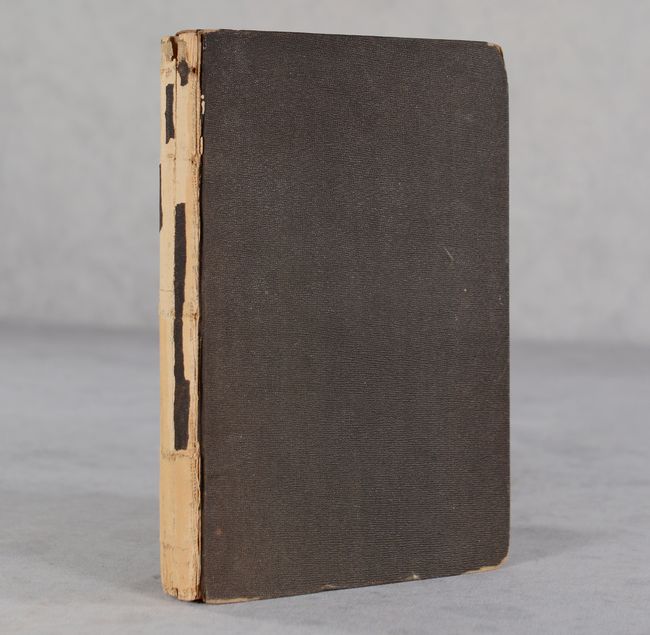Subject: Documents - Abolitionism
Period: 1856-63 (dated)
Publication:
Color: Black & White
Size:
6 x 9 inches
15.2 x 22.9 cm
A sammelband of nine mostly anti-slavery pamphlets by notable abolitionist John Jay, grandson of founding father John Jay, and one of the founders of the Republican Party:
American Free – or America Slave. An Address on the State of the Country, 1856. 20 pages with full page map entitled Freedom and Slavery, and the Coveted Territories. An offprint of the article that appeared in the newspaper. Ex-library.
A Statistical View of American Agriculture, Its Home Resources and Foreign Markets, 1859. 81 pages, including appendices.
The Great Conspiracy. An Address Delivered at Mt. Kisco…on the 4th of July, 1861, 1861. 50 pages.
Mr. Jay’s Letter on the Recent Relinquishment of the Monroe Doctrine, 1863. 8 pages. Includes manuscript note “The Mercantile Library from the Author.”
New Plottings in Aid of the Rebel Doctrine of State Sovereignty. Mr, Jay’s Second Letter on Dawson’s Introduction to the Federalist, 1864. 62 total pages. Jay protests the attempt by Dawson in his introduction to a new edition of the Federalist, of which Jay’s grandfather was co-author, to make the case that the Federalist Papers actually are supportive of the secession by the Southern States. Jay vigorously protests the “libels of the authors” of the Federalist.
The Great Issue. An Address Delivered Before the Union Campaign Club, 1864. 32 pages.
The Constitutional Principles of the Abolitionists, and their Endorsement by the American People. A Letter to the American Anti-Slavery Society, 1864. 12 pages.
Our Triumph and Our Duties. Mr. Jay’s Remarks At the Celebration Dinner of the East Brooklyn Campaign Club…on December 22, 1864. Jay’s letter celebrates Lincoln’s recent victory with majorities in the House and Senate for the Republican Party. 6 pages.
Judge Jay’s Portrait at White Plains. Correspondence in Reference to Its Original Acceptance…and the Recent Attempt to Remove it from the Court House, 1863. 24 pages.
Jay was a lawyer who successively defended fugitive slaves and went on to serve as an Ambassador to Austria-Hungary.
References:
Condition: B
Contents range from good to very good with some light toning, occasional pencil/ink notations, and some minor creasing. Text block is quite loose with a couple of signatures separated from the block. Rear cover is detached, front board is starting, and the spine has nearly perished.





